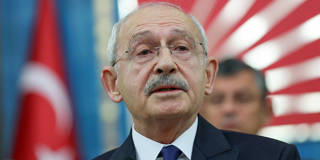Even if opposition parties can unite against an incumbent strongman, it is much more difficult to change the parameters of politics and frame an election accordingly. Yet, in countries like Hungary, Israel, and Turkey, that is what a heterogeneous opposition coalition must do to have any chance of winning.
PRINCETON – Following a year of halting negotiations, six of Turkey’s opposition parties have finally united behind a single presidential candidate in the election this May, with the hope of ending Recep Tayyip Erdoğan’s increasingly autocratic and repressive two-decade rule. This month, the so-called Table of Six converged on Kemal Kılıçdaroğlu, the leader of the social democratic and secularist Republican People’s Party (CHP), after having sidelined younger, more charismatic contenders such as the CHP mayor of Istanbul, who had recaptured the city from Erdoğan’s Justice and Development Party in 2019.

PRINCETON – Following a year of halting negotiations, six of Turkey’s opposition parties have finally united behind a single presidential candidate in the election this May, with the hope of ending Recep Tayyip Erdoğan’s increasingly autocratic and repressive two-decade rule. This month, the so-called Table of Six converged on Kemal Kılıçdaroğlu, the leader of the social democratic and secularist Republican People’s Party (CHP), after having sidelined younger, more charismatic contenders such as the CHP mayor of Istanbul, who had recaptured the city from Erdoğan’s Justice and Development Party in 2019.